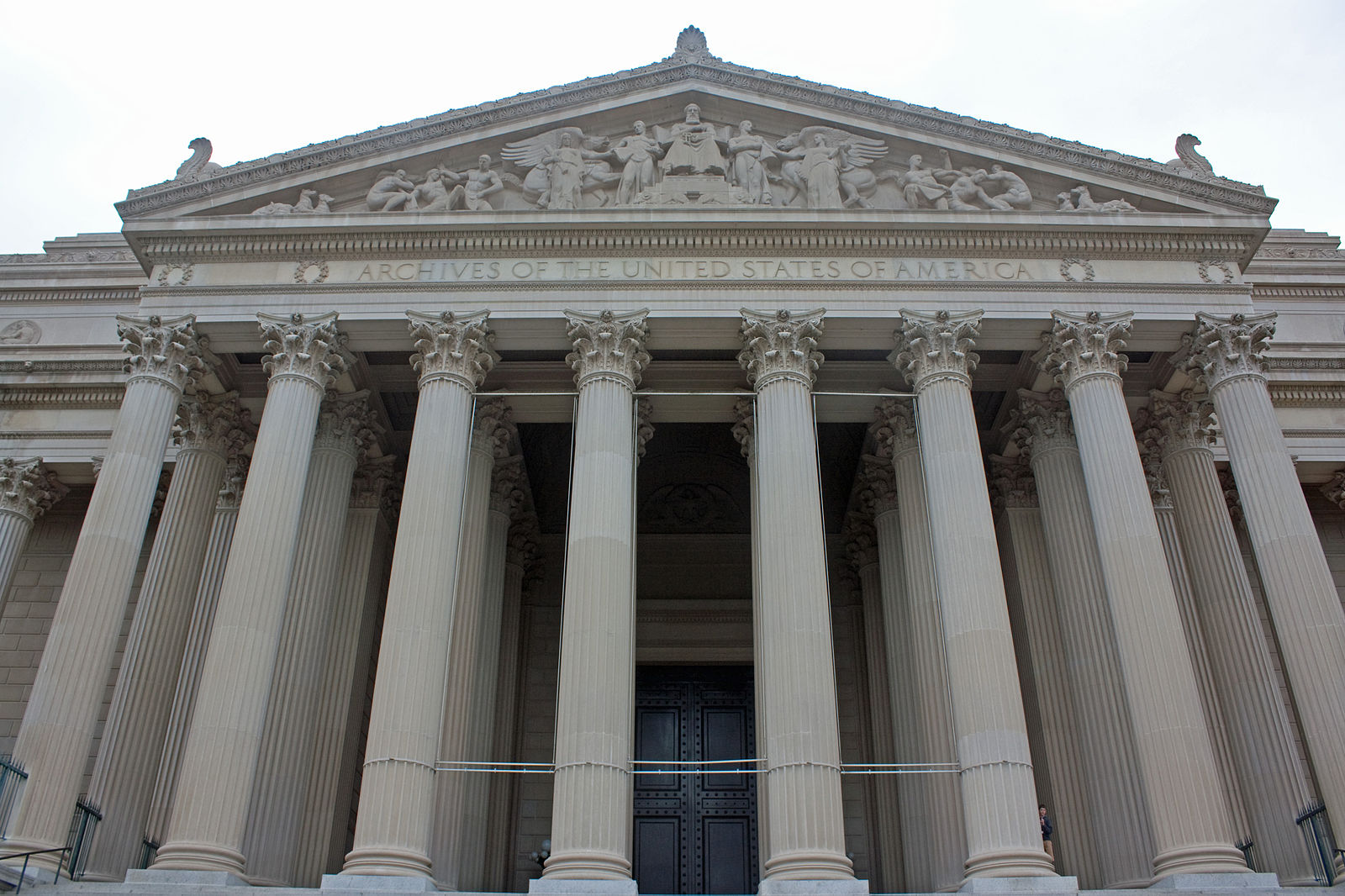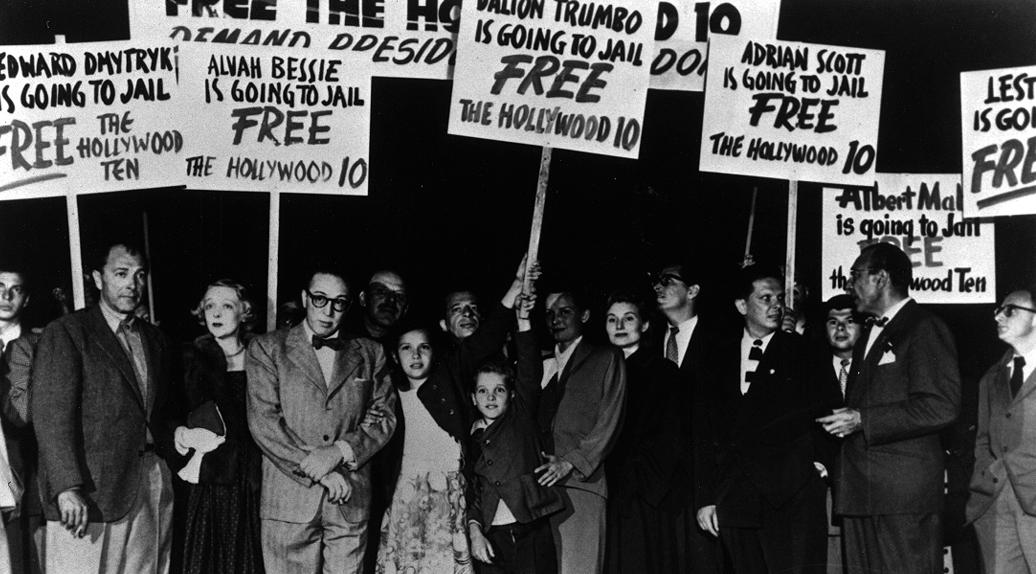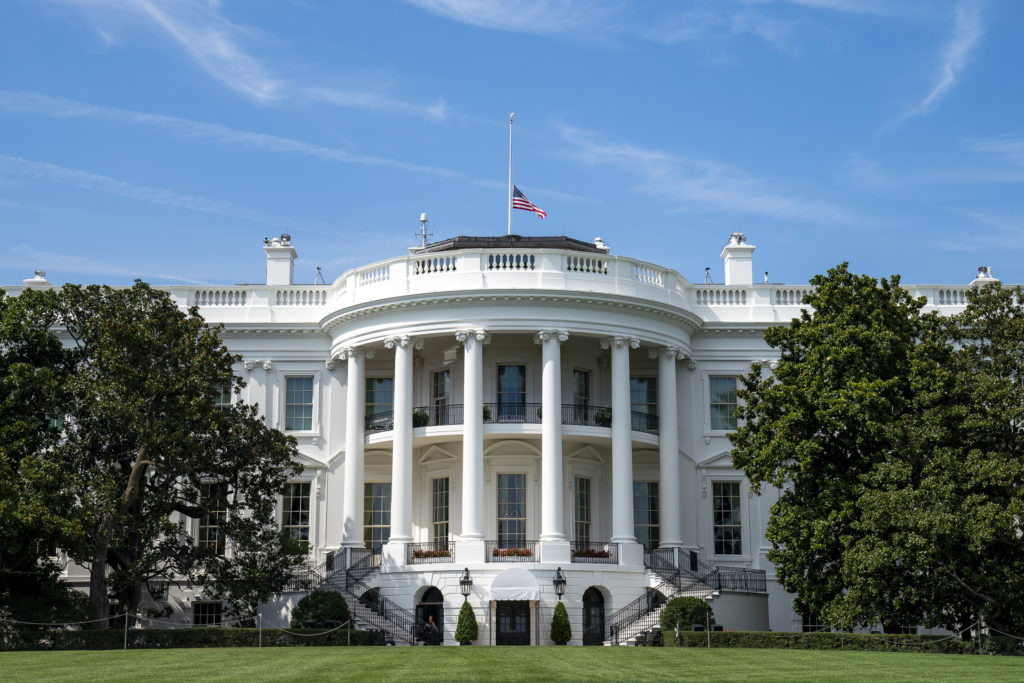How to Ensure That Trump Preserves Official Documents
Congress and ordinary citizens should take steps now to deter the Trump administration from destroying evidence of wrongdoing.

Published by The Lawfare Institute
in Cooperation With

Vice President Joe Biden is the presumptive winner of the presidential election. There are surely many things on Biden’s to-do list, but it’s not at all implausible that the Biden administration—and a Democrat-controlled House of Representatives—will probe the excesses of the Trump administration. What will they need to do this? Access to presidential records held by the White House and federal records held by the relevant agencies.
But there’s one problem: Trump officials may seek to destroy sensitive documents during the lame-duck period. The prospect of Trump administration officials destroying documents during the transition has already been raised by oversight groups and the media. And those concerns may be well-founded. The Trump administration has exhibited a general disdain for the rule of law and is unlikely to be a cooperative partner in the transition. More than that, the administration has steadfastly resisted oversight efforts to date, and even prior to the transition, there have been several reports about the Trump White House failing to comply with the preservation requirements of the Presidential Records Act.
Document destruction during the presidential transition could constitute a federal crime, but there are weaknesses in the current legal regime that may make it difficult to hold officials who engage in those acts accountable. Fortunately, Congress, and even ordinary citizens, can take immediate steps to deter such document purges and to help ensure that bad actors who proceed anyway are subject to sanction or prosecution.
Inadequate Legal Protections
Destruction of presidential or agency records could violate several statutes, although each has notable limitations. The Federal Records Act and the Presidential Records Act require certain records held by federal agencies and the White House, respectively, to be retained. But these civil provisions might not dissuade bad actors—especially those who are not worried about a future career in government. The Presidential Records Act has been called toothless due to its lack of any real enforcement mechanism, and once officials have left the federal government, they are no longer subject to adverse personnel action for violations of the Federal Records Act. As such, the threat of criminal sanctions may be a more effective deterrent.
The two primary criminal provisions that address the destruction of government records are found in 18 U.S.C. § 1361 and 18 U.S.C. § 2071. They apply to the “willful” destruction of U.S. government property and U.S. government records, respectively. As acknowledged by the Department of Justice, however, these provisions contain some notable weaknesses. They are specific intent crimes, meaning that the government must prove that the defendant acted with knowledge that they were violating the law. This “willfulness” requirement can be very difficult for prosecutors to prove and can dissuade them from bringing charges.
What’s more, in order to result in a felony conviction under 18 U.S.C. § 1361, the government must prove that the damage from the destruction exceeded $1,000. This could be difficult to prove when dealing with federal records, which don’t have inherent value. And although 18 U.S.C. § 2017 does not contain a dollar threshold, its maximum sentence is only three years—which could easily result in probation for a first-time offender and thus may not be an effective deterrent.
In addition, it is quite possible that a Biden Justice Department will not be interested in pursuing criminal investigations against former Trump administration officials. There may be a desire to turn the page on the Trump years, and prosecutions of these officials could create a distraction that the Biden administration may attempt to avoid in this sharply divided political climate. Even if that’s not the case, the legal hurdles noted above will make it easier for reluctant prosecutors to turn down cases that they are weary of bringing for non-legal reasons.
Let the Congressional Subpoenas Fly
Fortunately, there are other mechanisms for deterring widespread document destruction. The first is for the relevant committees in the House of Representatives to issue a slew of subpoenas to the Trump White House and federal agencies. This strategy has two significant advantages.
First, congressional subpoenas can reach presidential records—unlike Freedom of Information Act (FOIA) requests, which are described in the next section of this piece. There is a higher risk that the Trump administration officials destroy presidential records controlled by the White House, so issuing congressional subpoenas is critical (destruction efforts may face greater resistance from career officials at federal agencies and are also more futile since agency records may have been disseminated more broadly).
Second, destroying documents in the face of a congressional subpoena brings in the possibility of several additional criminal charges relating to obstruction of justice. These statutes carry much more severe sentences than the provisions outlined above, and it will be easier for a prosecutor to meet the intent requirements if documents are destroyed in the face of a widely-publicized subpoena—there will be no question that the official knew the destruction was unlawful. In addition, prosecutors always want to tell a story, and a case where a defendant destroyed documents that were responsive to a pending subpoena is much more appealing. Statutes that could be applied to such destruction include 18 USC §1512(c)—a key provision added by the post-Enron reforms in Sarbanes-Oxley, which carries a sentence of up to 20 years—as well as 18 U.S.C. § 1519 and 18 U.S.C. § 1505.
In order to implement this strategy, the relevant committee chairs in the House will need to move quickly to get subpoenas issued. Additionally, because any subpoenas issued now will expire when the current Congress ends on Jan. 2, 2021, the incoming Congress will need to quickly issue new subpoenas so that they remain in effect through the end of Trump’s term. It may take a few days for the newly-convened House to organize its committee structure, but it should not delay.
This strategy could help deter potential document destruction during the transition, while allowing time for the legal processes to play out. For subpoenas that are issued to federal agencies, the incoming Biden administration is likely to voluntarily comply with reasonable requests once it takes office (subject to potentially invoking some executive branch privileges). The House will have to initiate litigation to obtain presidential records from the outgoing Trump White House, which will raise novel questions about Congress’s ability to access records from a former president that are held by the National Archives. While public access to such records is normally not permitted for a minimum of five years—which can be extended to 12 years—the Presidential Records Act permits earlier access for congressional requests “if such records contain information that is needed for the conduct of its business and that is not otherwise available.”
There are already outstanding congressional subpoenas relating to the Ukraine scandal that led to President Trump’s impeachment, as well as subpoenas concerning Trump’s financial records and the U.S. Postal Service delays that could have impacted mail-in ballots, but those will need to be renewed by the relevant House committees when a new Congress convenes in January. And there are countless other topics that are not currently subject to active subpoenas that could be considered, including records relating to the illegal use of government resources in support of Trump’s reelection campaign, Trump’s abuse of his pardon powers, political interference at the Justice Department, and family separations.
To be sure, there are some limitations on this strategy: it requires the House committee chairs to act quickly and aggressively, which they haven’t always done to date. And they will have to go to court to enforce subpoenas for presidential records, which could drag on for years. But as a means of preventing document destruction during the transition, this strategy could be quite effective due to the deterrence provided by potential obstruction charges.
Preservation Orders in FOIA Cases
The second option for deterring document destruction is through FOIA litigation. This strategy has a distinct advantage: it does not depend on a Democratic Congress or a Biden Justice Department taking action. Ordinary citizens or advocacy groups can initiate the requests, and once litigation has been filed in federal court, judges may assume authority over enforcement. If a Trump official willfully violates a court’s order, the consequences could be severe—even without Justice Department action.
Judges have very broad contempt power relating to the proceedings before their court. If an official were to destroy documents subject to a preservation order, contempt proceedings could open up the defendant-agencies to discovery into the circumstances surrounding the destruction—effectively allowing the FOIA requester’s counsel to serve as the investigator—and could ultimately lead to criminal or civil sanctions against the agencies and any individual officers.
I can speak with some experience on this issue. While an attorney at the CIA, I defended the agency in the contempt proceedings that were initiated in the wake of the destruction of the interrogation videotapes (the destruction itself occurred prior to when I joined the agency). I also defended the CIA in subsequent FOIA litigation where that destruction was cited as grounds for distrusting the agency. Although the CIA ultimately dodged a bullet and was not held in contempt over the tapes' destruction, the contempt proceedings were quite painful and created considerable anguish inside the agency. There were also several mitigating factors in the tapes case that may not help Trump officials who destroy records, including the fact that it was unlikely that the CIA’s highly classified records would have been released in the FOIA case had they not been destroyed.
There are already numerous pending FOIA cases seeking a broad swath of agency records about Trump administration scandals. And even if a case is not presently filed, new litigation can be initiated within 20 business days of issuing a FOIA request, assuming the relevant agency does not substantively respond during that time period.
In each of these cases, FOIA requesters could ask the court to issue a preservation order to the defendant-agencies and their officials. Preservation orders are uncommon in FOIA litigation, but there are recent examples of courts granting them, and a compelling argument could certainly be made here in certain cases. Although the applicable case law is not well developed, courts evaluating the need for a preservation order will typically weigh the degree of concern about continued preservation of evidence, the irreparable harm likely to result from destruction and any burdens caused by issuing a preservation order. As such, this tactic should be used selectively where the relevant records are held by political appointees (not career officials) and where the risk of destruction is articulable.
Although federal officials who destroy records that are responsive to pending FOIA requests could face legal risk regardless, the issuance of a court-ordered preservation order has several benefits. First, destruction would be in direct contravention of an explicit court-order, creating a higher likelihood of a contempt finding; judges do not like it when their orders are violated.
Second, when a preservation order is issued, the Justice Department will be responsible for informing the relevant agency officials about the existence of the order. If Trump administration officials destroy records after having been informed of the preservation order, not only will they risk a contempt finding, they will also make it much easier for a prosecutor to establish the willfulness requirement under the various criminal statutes. For this reason, litigants might insist that the preservation orders be specifically delivered to all political officials who will be transitioning out of government—especially if those officials may possess personal records (like emails on personal accounts) that are potentially responsive to the pending FOIA requests. If these officials destroy responsive records after having been served with a preservation order, there will be no question that the destruction was willful.
One limitation of this strategy is that presidential records are not subject to FOIA. However, FOIA requests can potentially reach White House records that were disseminated to agencies or agency records that reflect White House communications, and FOIA requesters should consider targeting such records with their requests. The mere fact that a record was sent by the White House does not automatically make it a presidential record that’s exempt from FOIA. Whether those records will ultimately be subject to FOIA will require a fact-dependent evaluation based on the circumstances surrounding the creation, possession, control and use of each document. Accordingly, no agency could safely delete those records while a FOIA case seeking those records is pending.
The purpose of this approach would be to successfully dissuade Trump administration officials from destroying records in the first place. If they proceeded anyway, they could face severe sanctions from the judge overseeing the case. While I have full confidence that the dedicated career officials at federal agencies would resist any effort to destroy records, I cannot say the same about Trump administration political appointees—and therefore this strategy is worth pursuing.




